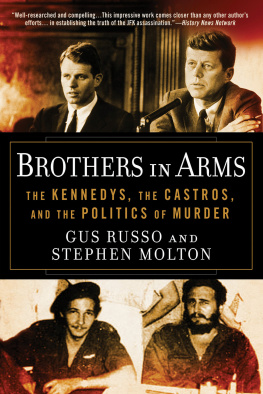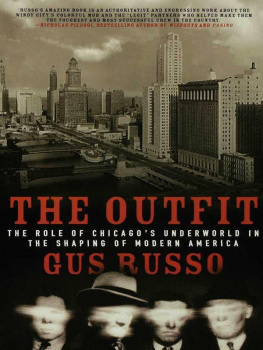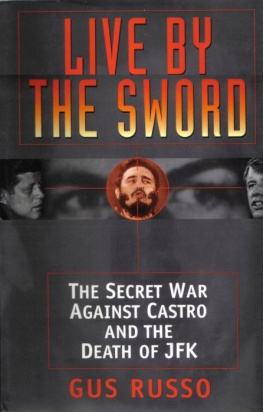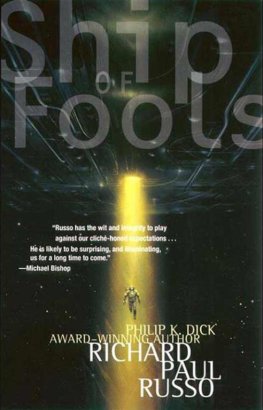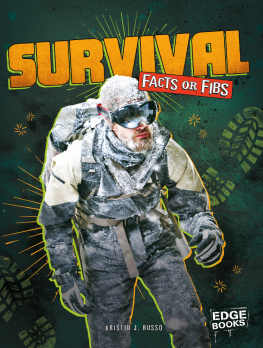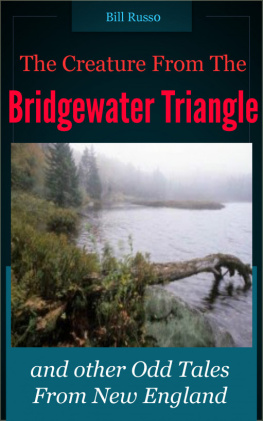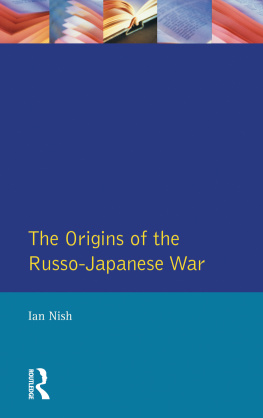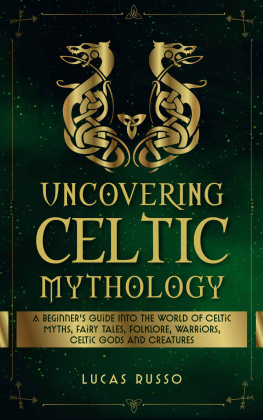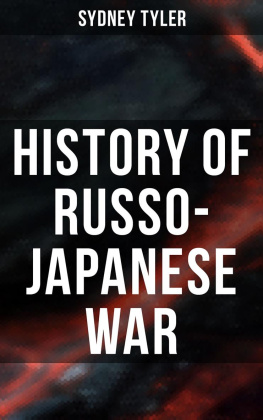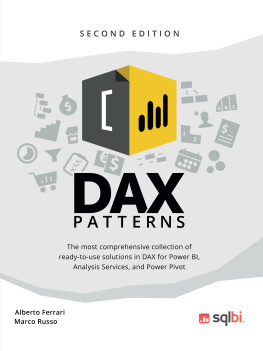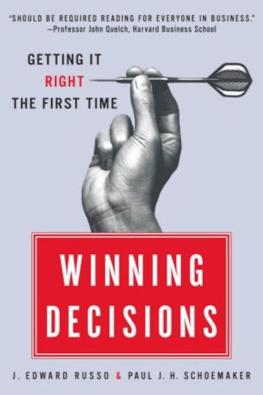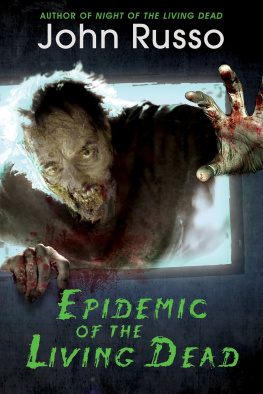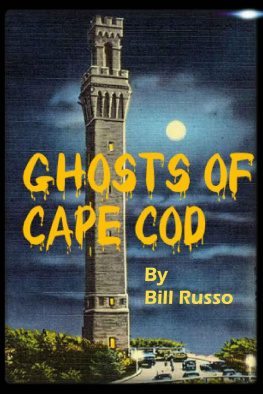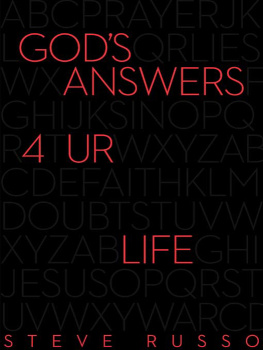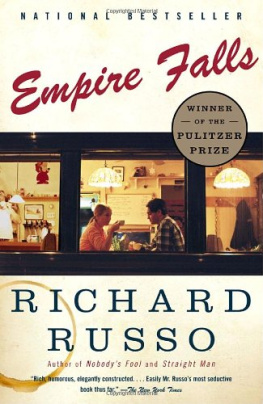Gus Russo - Where Were You? JFK
Here you can read online Gus Russo - Where Were You? JFK full text of the book (entire story) in english for free. Download pdf and epub, get meaning, cover and reviews about this ebook. year: 2013, publisher: Lyons Press, genre: Detective and thriller. Description of the work, (preface) as well as reviews are available. Best literature library LitArk.com created for fans of good reading and offers a wide selection of genres:
Romance novel
Science fiction
Adventure
Detective
Science
History
Home and family
Prose
Art
Politics
Computer
Non-fiction
Religion
Business
Children
Humor
Choose a favorite category and find really read worthwhile books. Enjoy immersion in the world of imagination, feel the emotions of the characters or learn something new for yourself, make an fascinating discovery.

- Book:Where Were You? JFK
- Author:
- Publisher:Lyons Press
- Genre:
- Year:2013
- Rating:5 / 5
- Favourites:Add to favourites
- Your mark:
- 100
- 1
- 2
- 3
- 4
- 5
Where Were You? JFK: summary, description and annotation
We offer to read an annotation, description, summary or preface (depends on what the author of the book "Where Were You? JFK" wrote himself). If you haven't found the necessary information about the book — write in the comments, we will try to find it.
Where Were You? JFK — read online for free the complete book (whole text) full work
Below is the text of the book, divided by pages. System saving the place of the last page read, allows you to conveniently read the book "Where Were You? JFK" online for free, without having to search again every time where you left off. Put a bookmark, and you can go to the page where you finished reading at any time.
Font size:
Interval:
Bookmark:
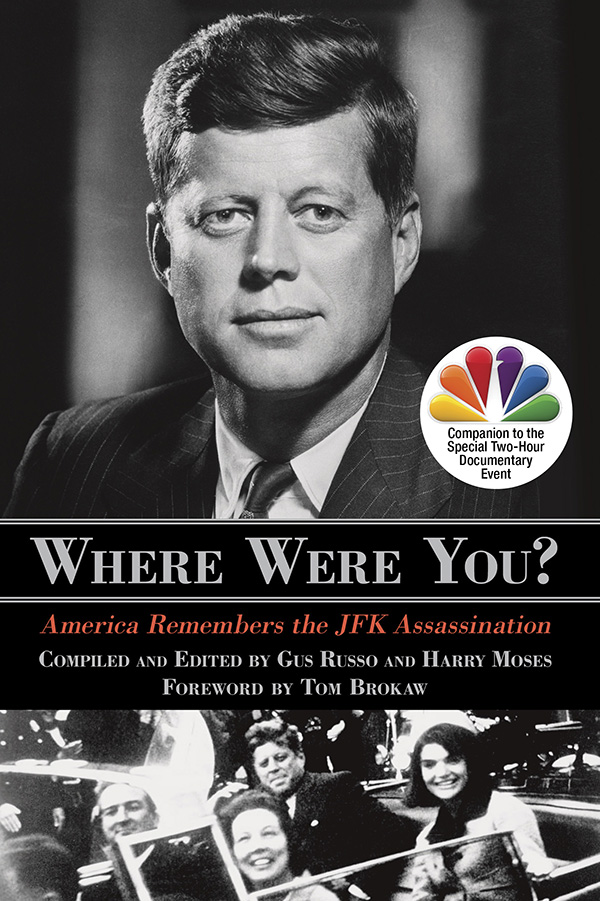
W HERE W ERE Y OU?
America Remembers the JFK Assassination
C OMPILED AND EDITED BY
G US R USSO AND H ARRY M OSES
Foreword by Tom Brokaw
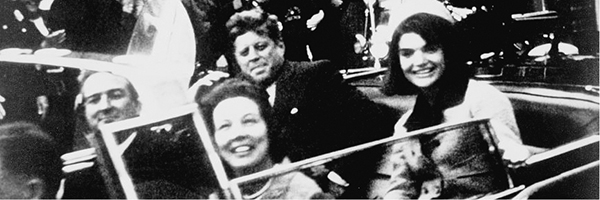
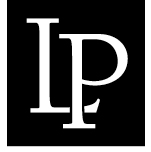
LYONS PRESS
Guilford, Connecticut
An imprint of Globe Pequot Press
Dedicated to the generation of Americans who were alive on November 22, 1963
Copyright 2013 by Gus Russo and Harry Moses
All rights reserved. No part of this book may be reproduced or transmitted in any form by any means, electronic or mechanical, including photocopying and recording, or by any information storage and retrieval system, except as may be expressly permitted in writing from the publisher. Requests for permission should be addressed to Globe Pequot Press, Attn: Rights and Permissions Department, PO Box 480, Guilford, CT 06437.
Lyons Press is an imprint of Globe Pequot Press.
Title page photo courtesy of the Library of Congress. All archival photos courtesy of interviewees, except Mike Barnicle: Boston University; Harry Belafonte and JFK: JFK Library; Joseph Califano: Columbia University; Robert Caro: Newsday ; Jimmy Carter: Carter Center; John Glenn 1962: NASA; Richard Goodwin: JFK Library; Doris Kearns: Colby College; John Kerry: Seth Poppel Yearbook Library; Peter, Paul, and Mary: JFK Library; Clay Shaw: Tulane University; Andrew Young: AP Photo Images. All interview stills courtesy of NBC News.
Library of Congress Cataloging-in-Publication Data
Russo, Gus.
Where were you? : America remembers the JFK assassination / compiled and edited by Gus Russo and Harry Moses ; foreword by Tom Brokaw.
pages cm
Includes index.
ISBN 978-1-4930-0189-7
1. Kennedy, John F. (John Fitzgerald), 1917-1963Assassination. I. Moses, Harry. II. Title. III. Title: America remembers the JFK assassination.
E842.9.R877 2013
973.922092dc23
2013030984
Interviews with the contributors who appear in this book often lasted an hour or longer. In many cases, what appears in the Where Were You? television special distills those sessions to just a few minutes. What follows in this book are selections from those interviews that have been edited to conform to prevailing standards of accuracy, grammar, style, and usage.
C ONTENTS
F OREWORD
November 22, 1963a day that began with John Fitzgerald Kennedy making a short flight from Fort Worth to Dallas for a motorcade designed to take the young president through the streets and into the hearts of Texas voters. It was a momentous event for Lone Star State politics, but for most Americans it was just another late autumn day.
The wife of a doomed policeman was fetching a sick child from school. A young shoe store manager had no idea what lay in wait for him later that day. A future president was tending to his peanut farm. One of his successors had just finished a high school class. A future vice president was standing on the steps of his college library. A big-city preacher was meeting with folks in a country church. A Georgetown student was looking forward to playing the piano for the president when he returned to Washington, DC, that evening. A future movie star was attending his second-grade art class.
An ordinary dayuntil suddenly first radio and then television broadcast a staccato message from Merriman Smith, the legendary UPI wire service correspondent covering the presidents trip:
THREE SHOTS WERE FIRED AT PRESIDENT
KENNEDYS MOTORCADE IN DOWNTOWN DALLAS...
FLASH
FLASH
KENNEDY SERIOUSLY WOUNDED
PERHAPS SERIOUSLY
PERHAPS FATALLY BY ASSASSINS BULLET.
The three years that Jacqueline Kennedy later called Camelot came to a terrible, shocking end that sent the country into a spiral of grief and bewilderment, a national mourning at once majestic and haunting in its reminder of our crushing loss.

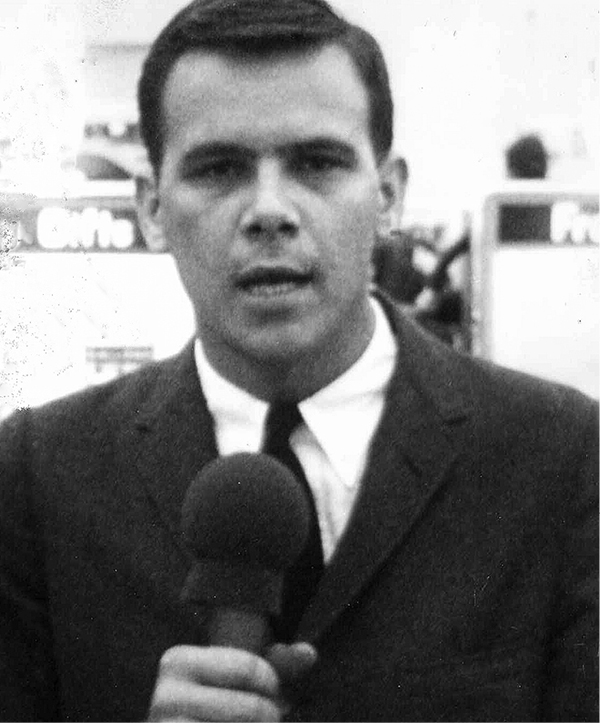
I was in an Omaha newsroom, having finished my chores as morning news editor for an NBC affiliate. I was twenty-three, married just a year, and hoping one day to become a Washington reporter. Kennedy was my kind of president: young, stylish, witty, with a glamorous wife and celebrity friends who included both astronauts and movie stars. Like many of my generation, I saw him as a welcome change from the grandfatherly figures of Eisenhower and Truman. He sailed and played touch football, shunned fedoras and double-breasted suits.
When I read those first alarming bulletins, running to get them on the air, I was roiled by conflicting emotions: My God, who would do this? Shooting a president? In America? As I raced out to the nearby headquarters of the Strategic Air Command, a Cold War nerve center, to check its status, extra heavy security turned me away at the gate. I remember thinking, What now? This is going to be a different country . The innocence of my 50s, Midwest upbringing shattered.
As I raced out to the nearby headquarters of the Strategic Air Command, a Cold War nerve center, to check its status, extra heavy security turned me away at the gate.
The Midwestern governors were meeting in Omaha, and I interviewed the best known of them, George Romney of Michigan, a man with his own presidential aspirations, but that day he was another grieving citizen. I later described to his son Mitt how his father comforted my cameraman. In Nebraska, a conservative state, there were other issues to deal with, notably: Would the University of Nebraska play its biggest rival, the University of Oklahoma, in Lincoln the following day? The game went on, as did others across the country, and as a reporter in the stadium, I remember that the cheering Nebraska fans offered a raucous contrast to the solemnity everywhere else.
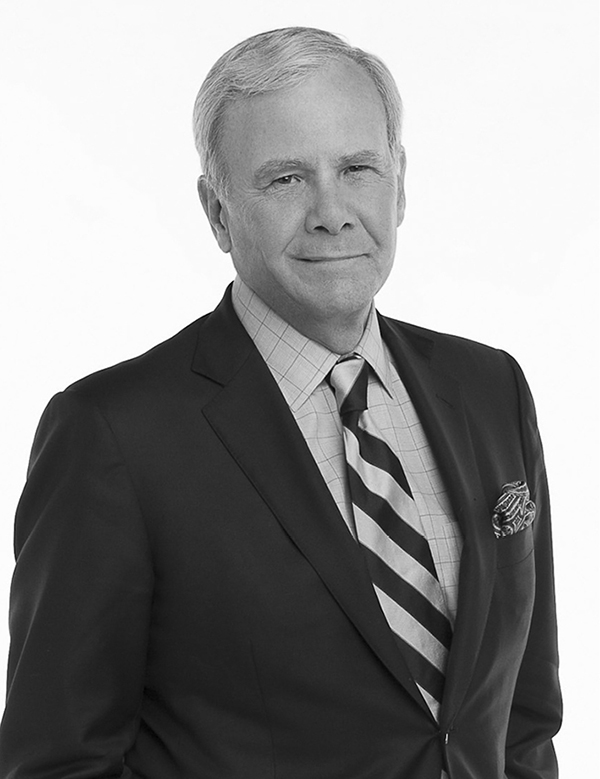
We were suddenly a different people, and, as you will read in the following pages, for those who lived through the news from Dallas and the mourning that followed, we were bound first by the common experience of sharing our grief and the rituals of transferring power as it all played out on network television. Half a century later, future presidents, astronauts, students, doctors who received the presidents shattered body, journalists, historians, and even Russian spies remember exactly where they were and what they thought when they heard the news. Dont we all?
Marie Tippit, wife of the Dallas cop murdered by Lee Harvey Oswald after the president was shot, treasures a painfully poignant letter she received from Jackie Kennedy the following week. John Brewers life is still measured by that day when he saw Oswald duck into a movie theater and followed him inside. Buell Fraziers life became a living hell when word got around that he drove Oswald to work that day, a favor that has shadowed him ever since. Andrew Young, the civil rights leader, breaks down even now remembering how poor country church parishioners wailed in their grief when they heard the news. Mort Sahl, the presidents friend and joke writer, will never believe it was just Oswald. Pentagon Counsel Joe Califano helped Bobby Kennedy select the presidents gravesite and then went to work for the new president, who, Joe says, believed Castro somehow played a part.
Font size:
Interval:
Bookmark:
Similar books «Where Were You? JFK»
Look at similar books to Where Were You? JFK. We have selected literature similar in name and meaning in the hope of providing readers with more options to find new, interesting, not yet read works.
Discussion, reviews of the book Where Were You? JFK and just readers' own opinions. Leave your comments, write what you think about the work, its meaning or the main characters. Specify what exactly you liked and what you didn't like, and why you think so.

